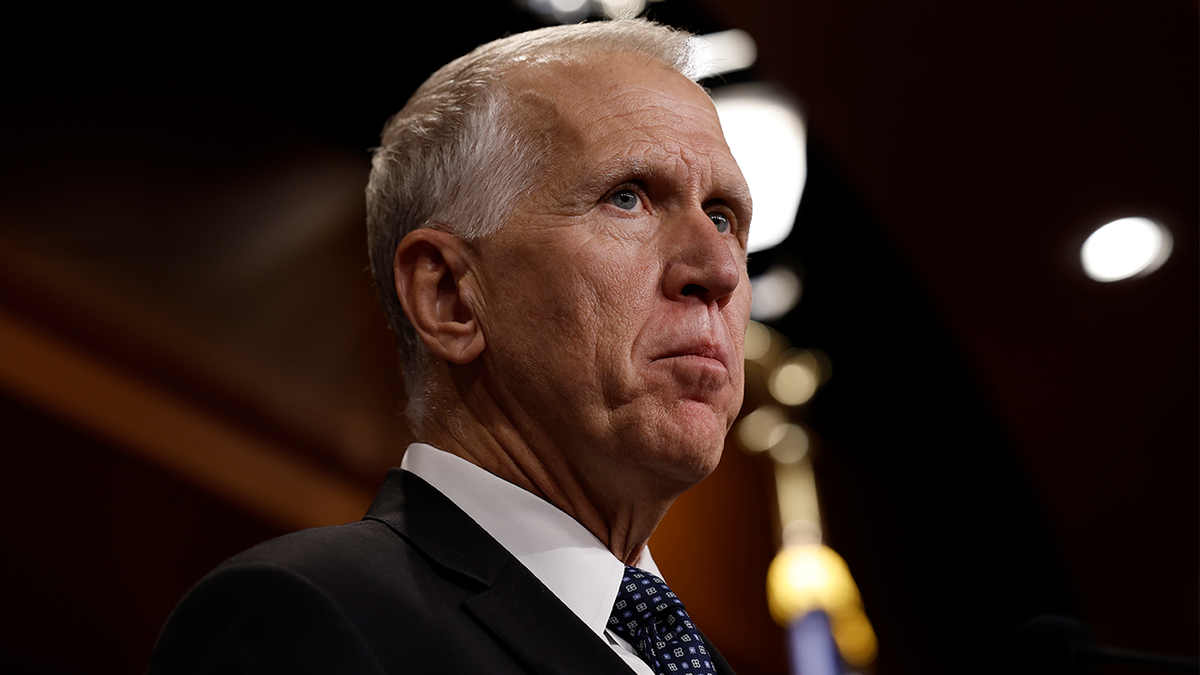Former President Donald Trump has publicly signaled his intent to support a primary challenge against North Carolina Senator Thom Tillis, setting the stage for a potentially contentious intra-party battle. This announcement underscores the ongoing tension within the Republican party and highlights Trump’s continued influence in shaping its direction. The move could significantly impact the political landscape in North Carolina and beyond.
Trump’s Rationale for a Primary Challenge
Trump’s decision to back a primary challenger to Senator Tillis stems from a perceived lack of loyalty and alignment on key policy issues. While Tillis has generally voted along party lines, there have been instances where he has publicly disagreed with Trump, particularly regarding the 2020 election results and certain legislative initiatives. According to a statement released by Trump’s office, Tillis has “failed to adequately represent the interests of North Carolina voters,” and a stronger, more conservative voice is needed in the Senate.
Potential Candidates and Their Platforms
Several potential candidates have emerged as possible contenders to challenge Tillis in the Republican primary. While no official announcements have been made, names circulating include figures known for their staunch conservative views and strong ties to the Trump wing of the party. These potential candidates are likely to campaign on platforms emphasizing border security, fiscal conservatism, and opposition to what they perceive as “woke” ideologies. A recent poll conducted by the Carolina Conservative Coalition indicated that a Trump-endorsed candidate could pose a significant threat to Tillis, especially among grassroots Republican voters.
Senator Tillis’s Response and Record
Senator Tillis has responded to Trump’s announcement by defending his record and highlighting his conservative credentials. He has emphasized his support for tax cuts, deregulation, and a strong national defense. Tillis also pointed to his work on bipartisan legislation, arguing that his ability to work across the aisle has benefited North Carolina. “My focus remains on serving the people of North Carolina and delivering results for our state,” Tillis stated in a press release. “I am confident that voters will recognize my commitment to conservative principles and my effectiveness in the Senate.”
The Impact on North Carolina and the Senate
The primary challenge against Senator Tillis has significant implications for both North Carolina and the broader political landscape of the Senate. A successful primary challenge could shift the Republican party in North Carolina further to the right, potentially impacting the state’s future elections. In the Senate, a change in representation could alter the balance of power and influence key legislative debates. Dr. Emily Carter, a political science professor at the University of North Carolina, notes that “this primary will be a crucial test of Trump’s enduring influence within the Republican party and its impact on the future direction of the Senate.”
Analyzing the Political Landscape
The political landscape in North Carolina is increasingly polarized, with both Republicans and Democrats vying for dominance. Trump’s endorsement in the primary adds another layer of complexity, potentially mobilizing his loyal base of supporters and creating a more competitive race. The outcome of this primary will likely serve as a bellwether for the direction of the Republican party and the strength of Trump’s influence in future elections. The Cook Political Report has already shifted its rating of the North Carolina Senate race to “Lean Republican,” indicating the potential vulnerability of Tillis.
The challenge against Senator Tillis reflects a broader trend within the Republican party, where loyalty to Trump and adherence to his political agenda have become increasingly important factors. This primary will be a closely watched contest, with implications for the future of the Republican party and the direction of American politics.
